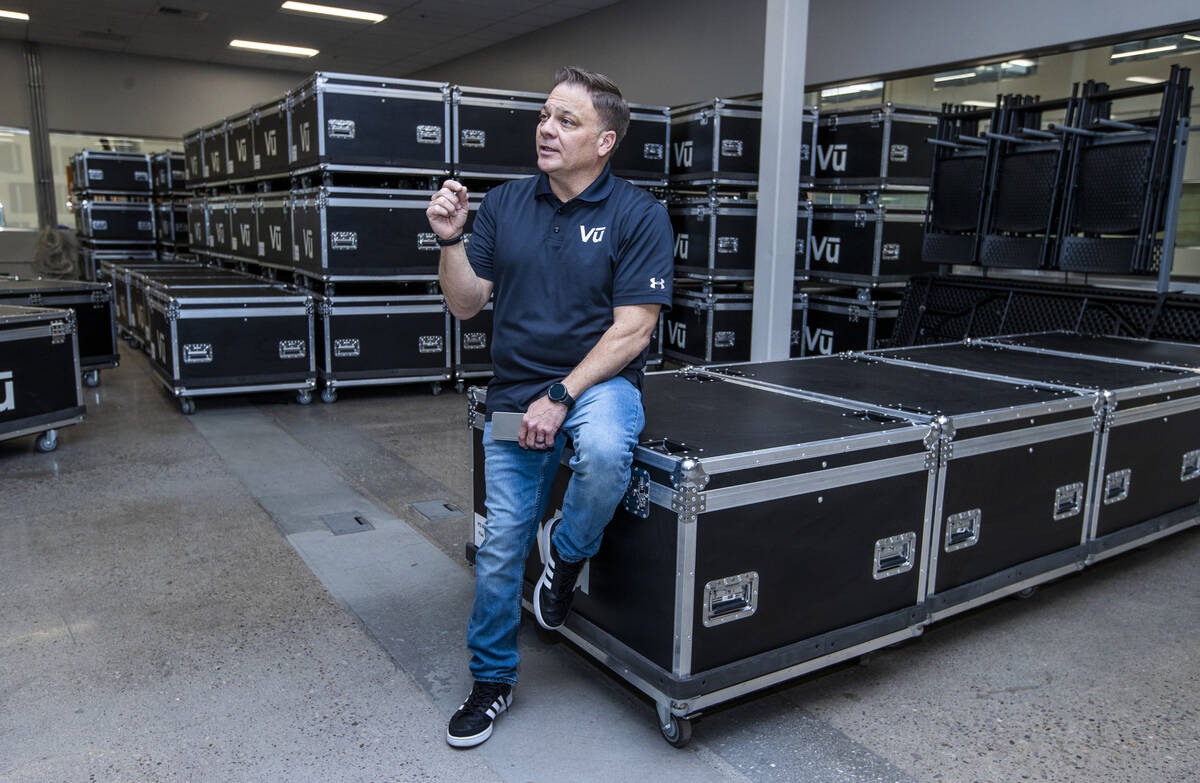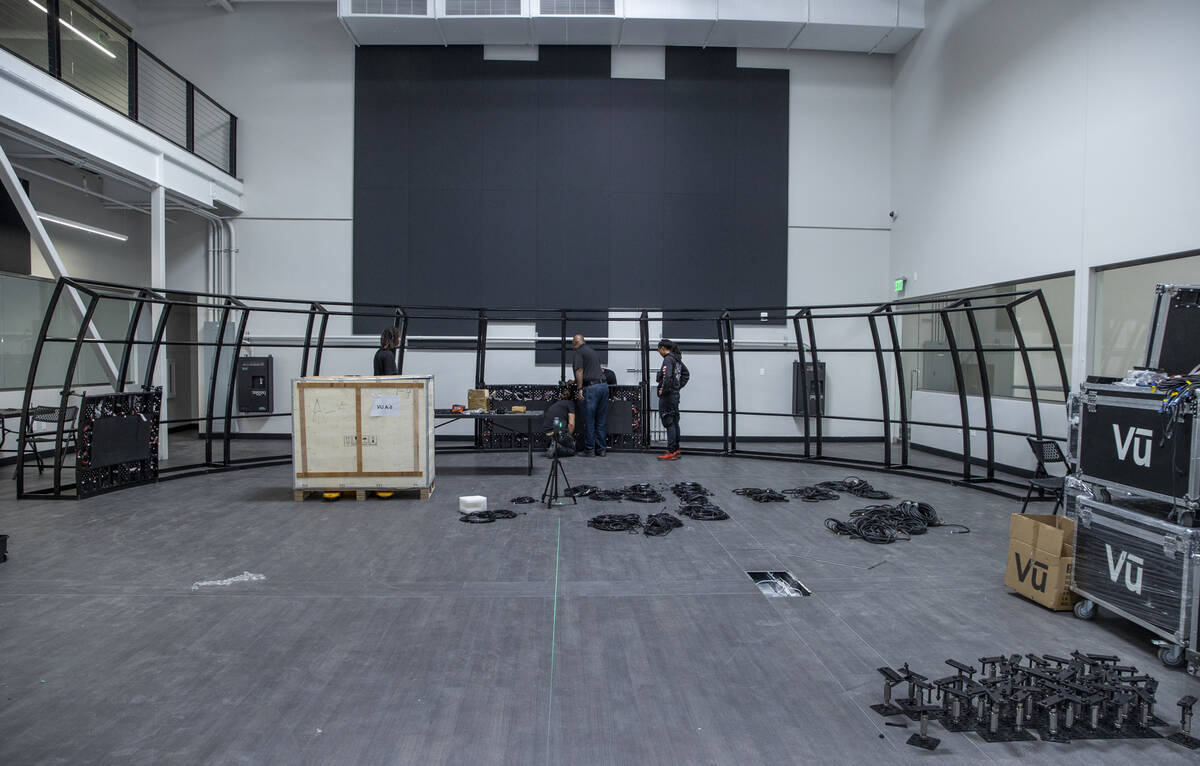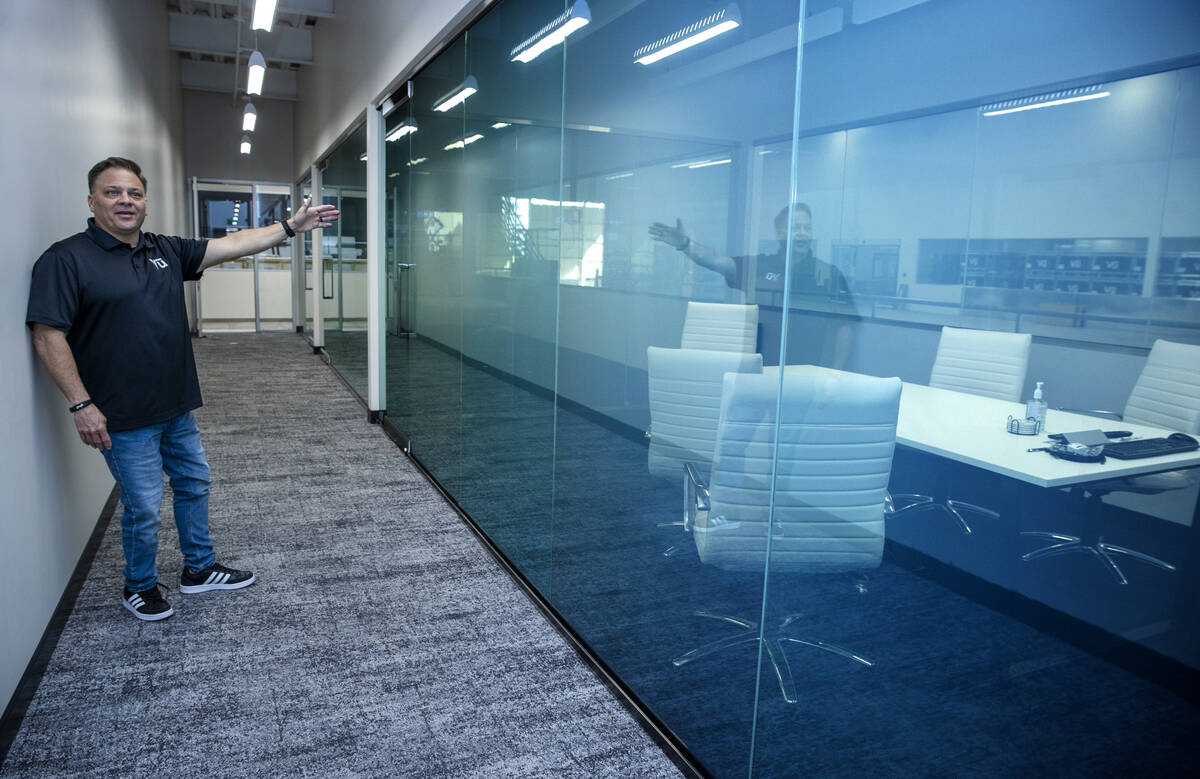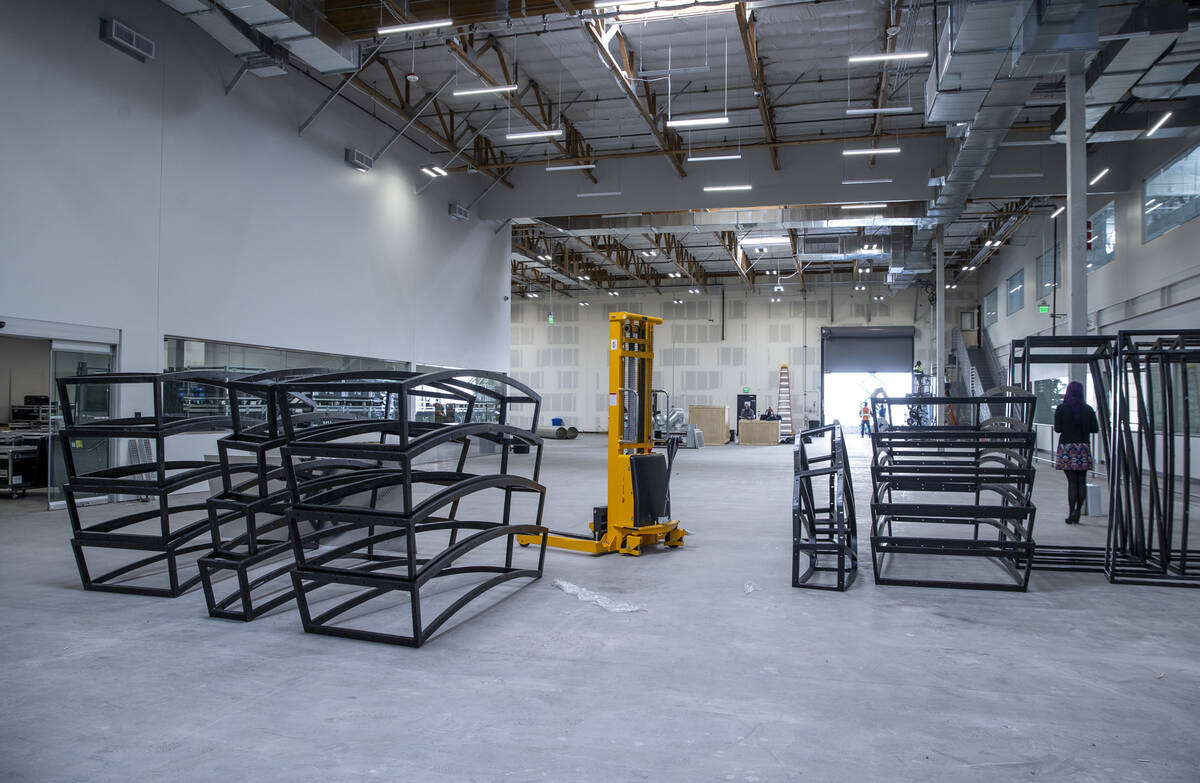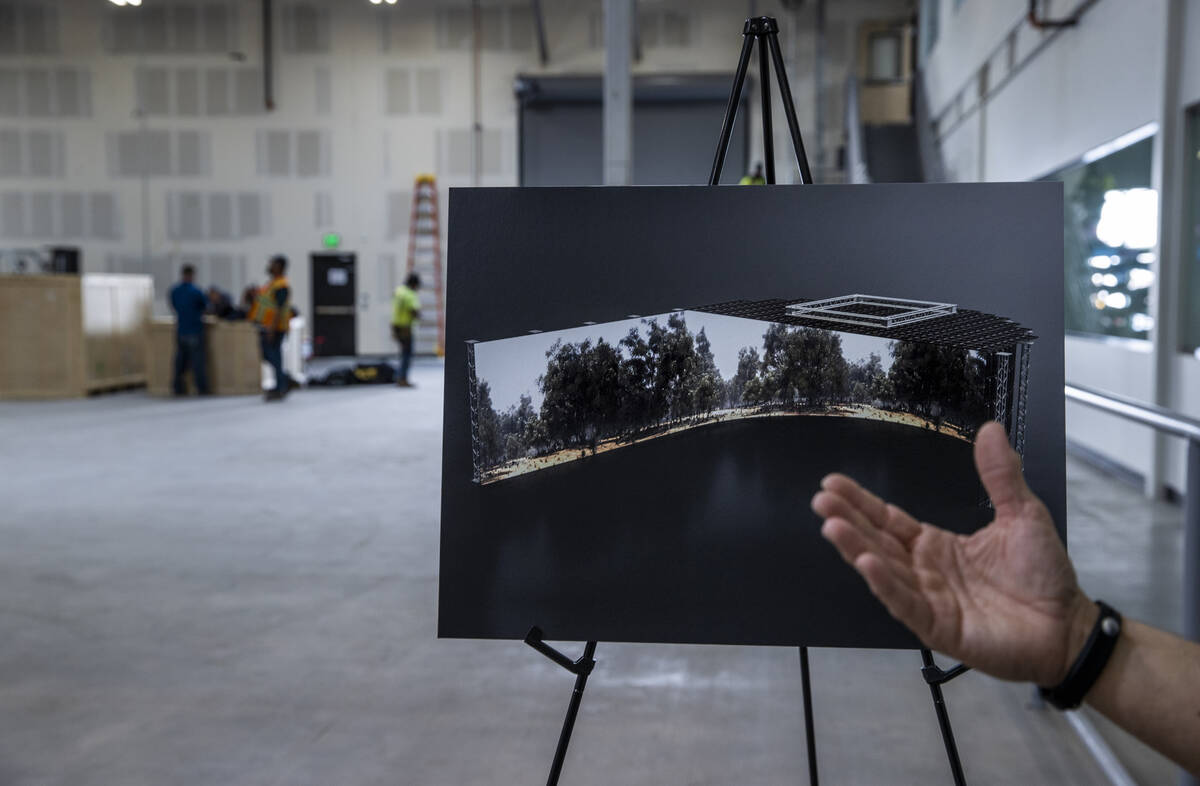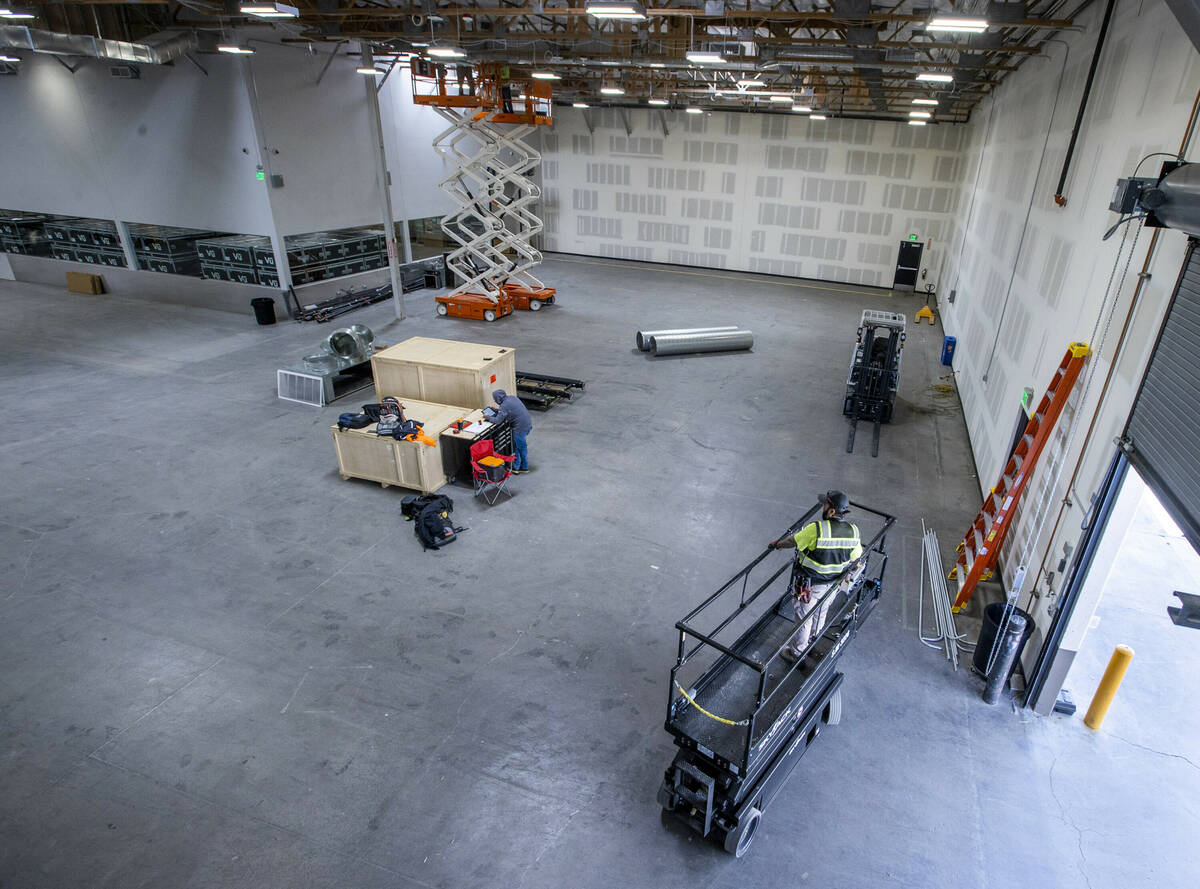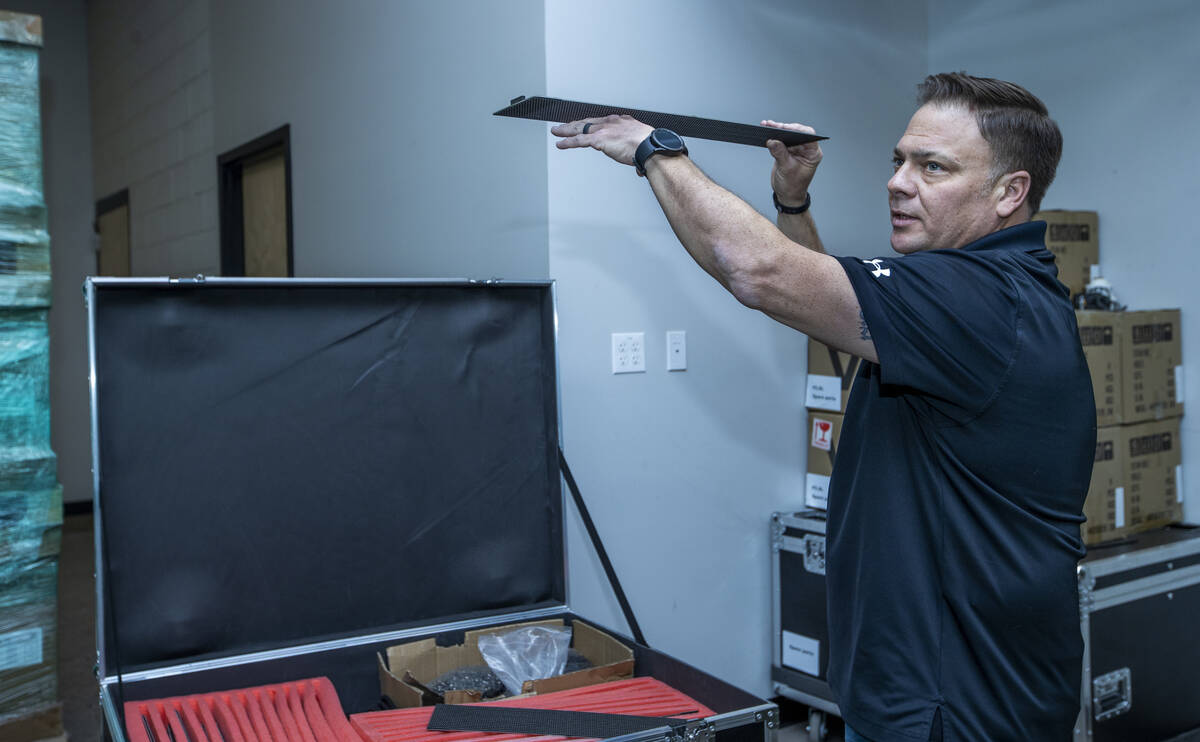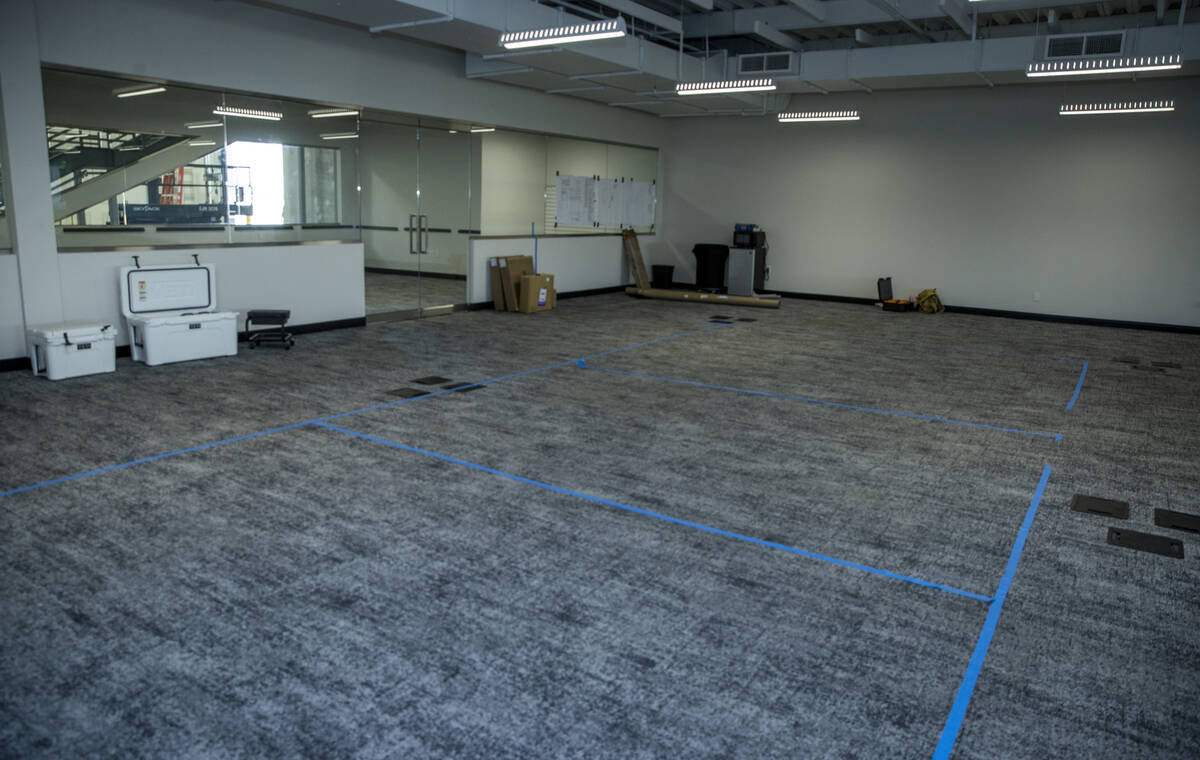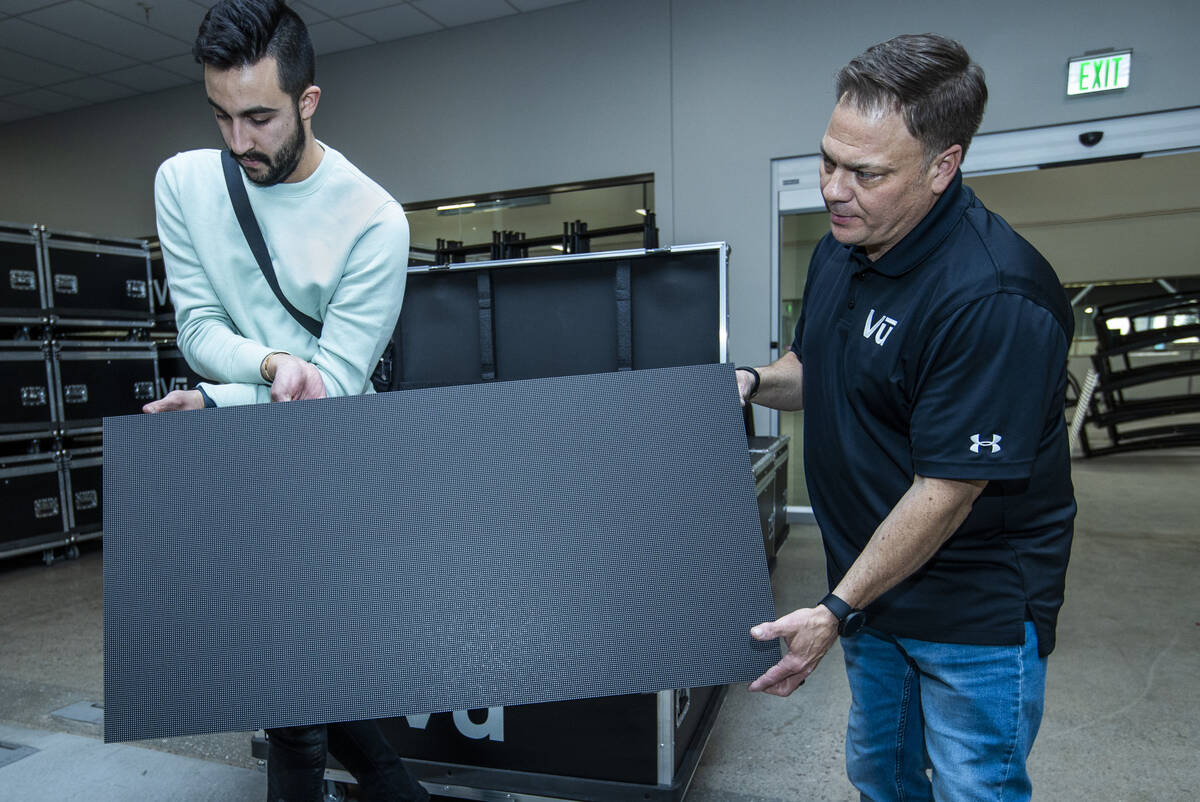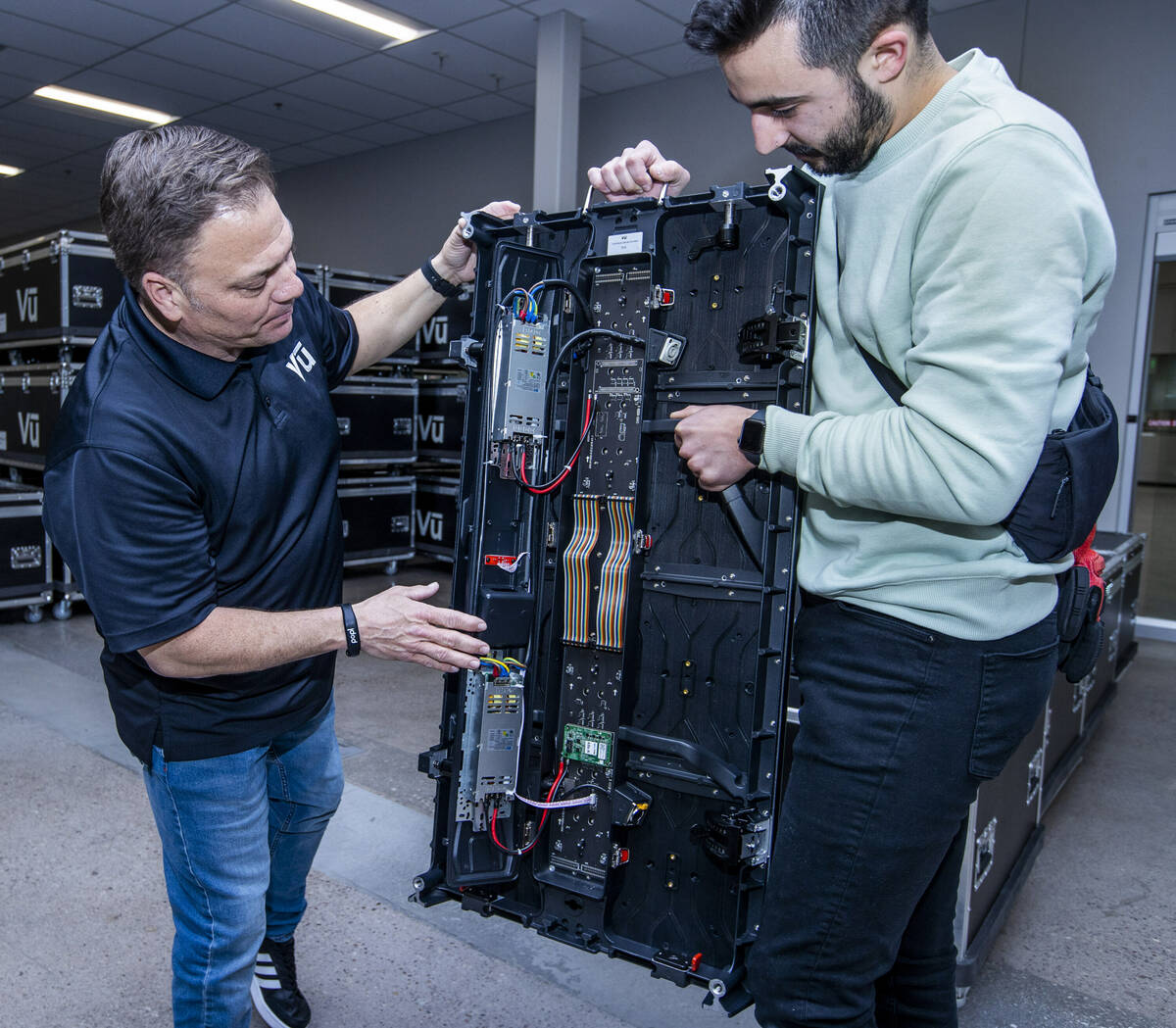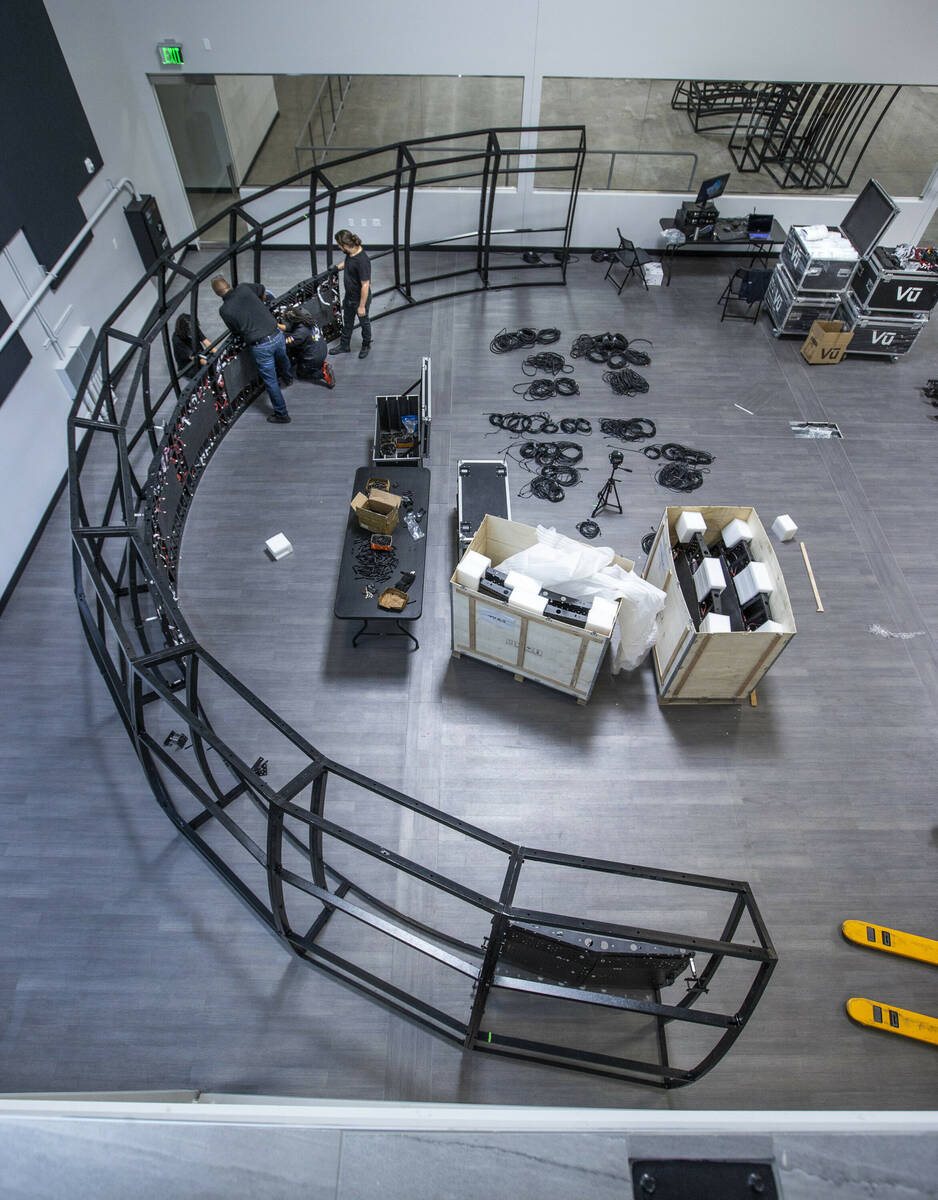Free Vū production studio looking to bolster film industry in Las Vegas
A fast-growing video production company is preparing to bring a bit of Hollywood to Las Vegas.
Vū Technologies is investing more than $7 million into its newest and largest studio facility at 901 Grier St., just south of Harry Reid International Airport, with a targeted opening date of April 22. The company expects to use its 43,000-square-foot Las Vegas facility and high-tech virtual video production equipment to host live presentations, further develop the local workforce and film commercials, episodic content and longform video.
Vū is intent on laying down roots in Las Vegas, the company’s first studio location west of the Mississippi River. And with Vū’s arrival comes hope that the company can help jump-start a permanent film industry residency in Southern Nevada.
While Southern Nevada and the Strip, in particular, are popular places to film for TV shows and movies, there are few film industry companies that call Nevada home, according to Greg Bortolin, spokesman for the Nevada Governor’s Office of Economic Development, which houses the Nevada Film Office.
Jason Soto, Vū’s vice president and Las Vegas campus general manager, said he’s excited to contribute to the further diversification of Nevada’s economy.
“We very much have plans to be that nucleus to bring other large companies here that are connected to film,” Soto, a Las Vegas local, said during a Tuesday tour of the facility.
Among the companies Vū hopes to attract, Soto said, are robotics firms that work in film, lighting companies looking to manufacture or distribute in Las Vegas or artificial intelligence and machine-learning companies such as those Vū is working with to upgrade its LED screens for camera tracking.
Growth plans
Vū announced Tuesday it received $17 million in seed funding to expand beyond its three facilities in Tampa, Florida, Nashville, Tennessee, and now Las Vegas. Expansion targets for this year include Orlando, Florida, Connecticut and New York, Soto said.
The company wants to create what it calls the world’s largest network of virtual studios. It counts among its clients Apple, Amazon, the Tampa Bay Buccaneers, the Tampa Bay Lightning, Disney, WWE, Twenty One Pilots, Jack Daniel’s and Mercedes-Benz.
“Thanks to our investors and technology partners, we believe Vū’s network will forever change the filmmaking landscape, presenting limitless opportunities for creatives,” co-founder and CEO Tim Moore said in a recent release.
Each studio uses expansive LED screens, augmented- and mixed-reality technology to create real-time virtual backgrounds for filming. The Las Vegas studio will have three stages: a flat LED wall standing 55 feet wide and 22 feet tall, a J-shaped LED stage standing nearly 20 feet tall and 140 feet wide and a half-dome video wall standing 30 feet wide, 19 feet tall and 15 feet deep. The half-dome will feature proprietary see-through LED ceiling panels to facilitate better sound and lighting.
“We love the Vegas value proposition — not just because I’m a native, but because it’s evident, right?” Soto said. So, for instance, “while we’ve got the Billboard Music Awards going on, I can bring in Pitbull — because he’s already in town — to do a commercial shoot or a music video.”
Logistically, he said, it’s a lot easier to film footage on the Strip at 5:30 p.m. on a bustling night in October and recreate the scene in a studio with a virtual background and physical props than it is to film a scene on location and account for the multiple variables that could interfere with filming.
“This is one of the most visited places on the planet,” and one that is constantly changing, Soto said. Virtual production can capture a Vegas moment in time and save it for perpetuity, long after it’s been remodeled, renovated or removed.
The company received tax incentives for committing $5.2 million in capital investments and is projected to generate $2.3 million in tax revenue for the state over the next 10 years, said Bortolin, the GOED spokesman.
He said GOED has talked with multiple film companies over the years about potentially expanding their operations in the state, though nondisclosure agreements prevent the state from identifying those companies.
Las Vegas is an attractive proposition for film companies because of its proximity to Hollywood and its status as an iconic destination, Bortolin said. He said it’s exciting that Vū wanted to work in Las Vegas and has progressed as a company.
“Who knows? Maybe that will lead to more activity and other companies coming here,” Bortolin said.
Vū agreed to a workforce development program to receive the tax incentives, Soto said. The company is set to partner with UNLV’s College of Fine Arts and the college’s film school “in the very near future” on a curriculum that will teach virtual production technology and offer an apprenticeship program with the company. The development program may sway a student’s decision to migrate to Southern California or from building worlds in video games to creating movie scenes.
“Let’s teach our kids here in Las Vegas and let them stay here or if they decide to go abroad … their education was done here at UNLV,” Soto said.
The company was born out of the pandemic when on-location filming shut down across the country, Soto said. Moore owned a video production company called Diamond View, and when filming shut down, he pivoted to virtual production technology.
Soto said that high-tech virtual production panels needed to create LED walls were previously limited to major production studios like Lucasfilm, Disney and HBO. Vū executives negotiated a deal with Chinese factories to build their own LED panels, he said.
The studio network allows for directors, producers and actors in different cities to film the same scene at the same time without the use of a green screen.
Soto added that virtual studios can reduce post-production costs and time by 70 percent. The company films or scans scenes and uploads them into a database. Staff then can use Epic Games’ Unreal Engine video game engine program to synthesize that footage into an interactive, real-time virtual background.
Contact Mike Shoro at mshoro@reviewjournal.com. Follow @mike_shoro on Twitter.



